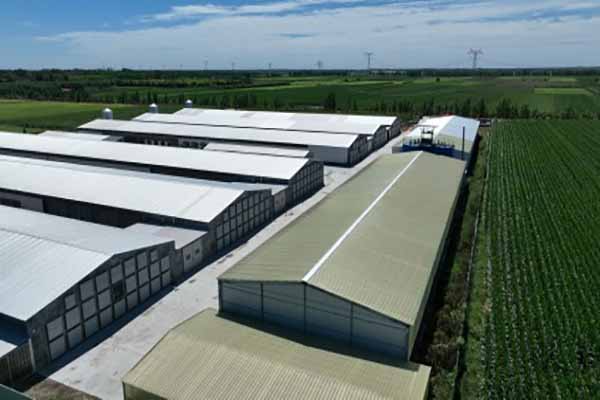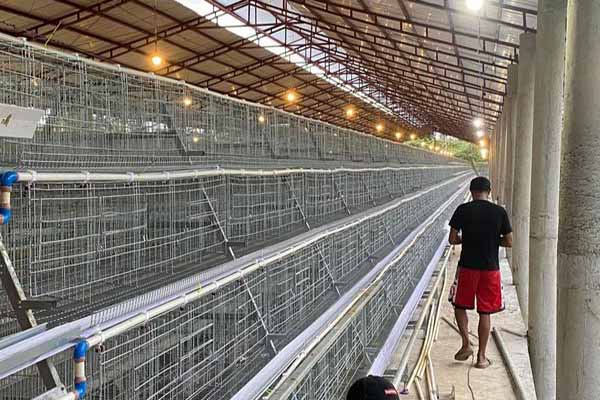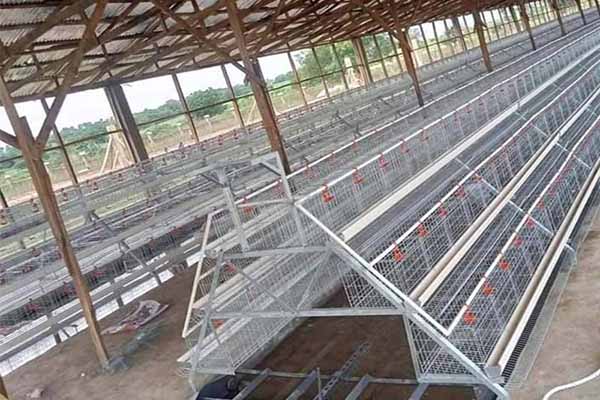Export Tariffs for Chicken Farming Equipment in Tanzania: A Comprehensive Guide
Time : 2025-06-29
In the dynamic world of poultry farming, Tanzania has emerged as a key player in the East African region. With a growing demand for high-quality chicken, the need for sophisticated farming equipment has increased exponentially. This article delves into the export tariffs for chicken farming equipment in Tanzania, providing insights into the costs and regulations associated with importing this critical equipment.
Understanding Export Tariffs
Export tariffs are taxes imposed on goods when they enter a country. In the case of Tanzania, these tariffs are designed to protect local industries and regulate international trade. For chicken farming equipment, these tariffs can significantly impact the cost of importing the necessary machinery and tools.
Types of Tariffs Applicable to Chicken Farming Equipment
- Ad Valorem Tariffs: These are taxes based on the value of the goods. For chicken farming equipment, this could mean paying a percentage of the total value upon importation.
- Specific Tariffs: These are fixed rates per unit of the imported product. For example, a specific tariff of $100 per piece of equipment means that each unit is subject to a $100 charge.
- Mixed Tariffs: A combination of ad valorem and specific tariffs, which can complicate the calculation of the total import cost.
Current Tariffs for Chicken Farming Equipment in Tanzania
As of the latest information available, the following tariffs are typically applied to chicken farming equipment imported into Tanzania:
Ad Valorem Tariffs
Ad valorem tariffs for chicken farming equipment range from 10% to 25% of the total value of the goods. This means that if a piece of equipment is valued at $10,000, the ad valorem tariff could be anywhere from $1,000 to $2,500.

Specific Tariffs
Specific tariffs vary depending on the type of equipment. For example, feeders, incubators, and feed mixers may have specific tariffs ranging from $50 to $200 per unit. It is essential to check the exact rates for the specific equipment you plan to import.
Additional Costs and Considerations
While tariffs are a significant factor in the cost of importing chicken farming equipment, there are other expenses to consider:
- Customs Clearance Fees: These are fees paid to the customs authority for processing the importation of goods.
- Documentation Costs: This includes the cost of obtaining necessary documents, such as invoices, certificates of origin, and shipping documents.
- Insurance and Freight Costs: Protecting the goods during transit and the cost of shipping them to Tanzania are additional expenses.
Regulations and Compliance
Importing chicken farming equipment into Tanzania requires compliance with several regulations:
- Quality Standards: Equipment must meet the required quality standards as set by the Tanzania Bureau of Standards.
- Import Licenses: Certain equipment may require an import license, which must be obtained before shipping.
- Health and Safety Regulations: Equipment must adhere to health and safety regulations specific to Tanzania.
Choosing the Right Supplier
Selecting the right supplier is crucial to ensure that you receive high-quality equipment and manage the costs effectively. Here are some tips for choosing a supplier:

- Research and Compare: Look for suppliers with good reviews and compare their prices, services, and reputation.
- Request Quotes: Get detailed quotes from multiple suppliers to understand the total cost of the equipment, including tariffs and other fees.
- Check for After-Sales Service: Ensure that the supplier offers reliable after-sales support, including installation and maintenance services.
Conclusion
Importing chicken farming equipment into Tanzania involves navigating complex tariff structures and compliance requirements. By understanding the current tariffs, additional costs, and regulations, you can make informed decisions to ensure a successful importation process. Always choose reputable suppliers and stay updated on any changes in tariffs or regulations to manage your costs and ensure compliance.












